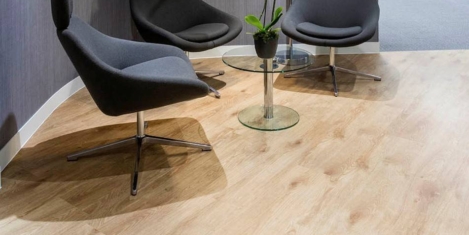June 7, 2017
Coworking and the current French revolution in the workplace 0
 In France, we might have been the first to behead a King and hold a revolution, or to stand on barricades and die for ideals of justice and equality, but when it comes to change – especially in large organisations– we always seem to lag behind. You could blame it on a number of factors: a cultural bias towards tradition, the legacy of an interventionist and ever-present state, spawning bureaucratic models of large state-owned corporations, the everlasting grasp of the elites stifling innovation and the ability to “think outside the box”… Whatever this may be, the debate around remote working – a type of work organisation which allows employees to work regularly away from the office – in France has always been articulated around the preconception that France was behind. And that while its Anglo-Saxon or Nordic European neighbours displayed a boastful 30 percent of the working population as remote workers, France struggled to reach a meagre 9 to 10 percent in 2010.
In France, we might have been the first to behead a King and hold a revolution, or to stand on barricades and die for ideals of justice and equality, but when it comes to change – especially in large organisations– we always seem to lag behind. You could blame it on a number of factors: a cultural bias towards tradition, the legacy of an interventionist and ever-present state, spawning bureaucratic models of large state-owned corporations, the everlasting grasp of the elites stifling innovation and the ability to “think outside the box”… Whatever this may be, the debate around remote working – a type of work organisation which allows employees to work regularly away from the office – in France has always been articulated around the preconception that France was behind. And that while its Anglo-Saxon or Nordic European neighbours displayed a boastful 30 percent of the working population as remote workers, France struggled to reach a meagre 9 to 10 percent in 2010.














 The majority (79 percent) of workers say reliable and modern technology is more important to them than office aesthetics, while accessories such as ping pong tables, slides, hammocks and wacky office designs may look good in pictures, but they don’t necessarily make employees any happier or productive. The is according to a survey, conducted by storage firm Kiwi Movers, which found that 86 percent of UK adults who work in an office said fun features were of no specific value to their working life, 11 percent said they were nice-to-have and of some value and 3 percent said they were very valuable. The most popular office perks are those offer an immediate tangible benefit to the employee, but even so, as many as 23 percent don’t take advantage every day; while 71 percent overall said they’d like more space in their office and of those, 58 percent believe that could be achieved by removing non-essential items. The research also found that younger workers were more likely on average to take advantage of ‘environmental’ perks like chill out areas and recreational equipment.
The majority (79 percent) of workers say reliable and modern technology is more important to them than office aesthetics, while accessories such as ping pong tables, slides, hammocks and wacky office designs may look good in pictures, but they don’t necessarily make employees any happier or productive. The is according to a survey, conducted by storage firm Kiwi Movers, which found that 86 percent of UK adults who work in an office said fun features were of no specific value to their working life, 11 percent said they were nice-to-have and of some value and 3 percent said they were very valuable. The most popular office perks are those offer an immediate tangible benefit to the employee, but even so, as many as 23 percent don’t take advantage every day; while 71 percent overall said they’d like more space in their office and of those, 58 percent believe that could be achieved by removing non-essential items. The research also found that younger workers were more likely on average to take advantage of ‘environmental’ perks like chill out areas and recreational equipment.















May 31, 2017
IBM’s retreat from flexible working. The world responds 0
by Mark Eltringham • Comment, Flexible working
In February 2013, Yahoo set off a mighty global stink when it sent a memo telling staff to forget about working from home, Starbucks, wherever and return to its corporate embrace. The intention of recently installed CEO Marissa Mayer was to increase collaboration and productivity by getting everybody in the same space. There is some logic to this, except for one thing. As Andrea Hak wrote for us in her masterful post mortem of the whole debacle last year: “With this change Yahoo was trying to attack a symptom rather than the root of the problem. Pitting employees against each other in a stack ranking style system actually discourages collaboration. The experiences of companies that ditched this system have shown that employees are more likely to try and undermine the competition than work together.” So who in the tech sector would possibly make the same mistake again? The answer is IBM.
(more…)